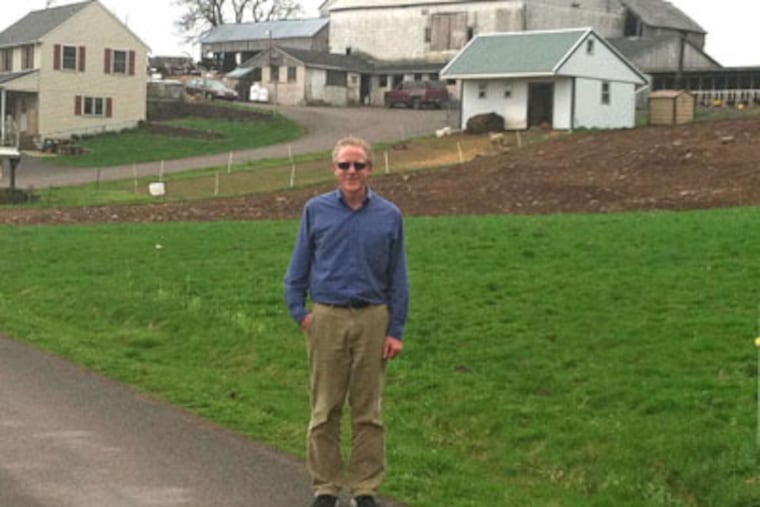Bucks County preserves 150th farm in its preservation program
Bucks County, with a history rooted in its rich agricultural soil, has reached a milestone, protecting the 150th farm under its preservation program.

Bucks County, with a history rooted in its rich agricultural soil, has reached a milestone, protecting the 150th farm under its preservation program.
"We reached 100 farms in 2007, and now we've preserved 50 in the past four years," Richard Harvey, director of the county's Agricultural Land Preservation Program, said Thursday.
The program was started in 1989 to slow the loss of prime agricultural land. In 1960, there were 4,069 farms covering 395,000 acres, according to the county's comprehensive plan. By 2007, those numbers had dropped to 934 farms and 76,000 acres.
The program has preserved 12,744 acres, including the 150th farm, the 135-acre Bowman property in Bedminster Township. On Wednesday, county commissioners unanimously approved a $608,260 payment for a conservation easement on the farm.
The state will pay the same amount, with the township contributing $67,500, bringing the total price for the easement to $1,284,020. The money will go to Kenneth Bowman, whose family has farmed the land for about 30 years, and who now grows hay and feed corn.
Under the easement, "the owner still owns the land, but if he sells it, it still has to be farmed," Harvey said.
Preserving farmland is important for economic, historic, aesthetic, and environmental reasons, he said.
"Agriculture is still a big component in the county's economy," he said, with the market value of crops and livestock totaling $70.6 million, according to 2007 census figures.
The Penn State Cooperative Extension provides educational programs to farmers, homeowners, and families and supports a 4-H program that had 8,224 members last year.
Aesthetically, farms are part of the landscape that inspires residents and attracts tourists. Historically, "they are a big part of the county's heritage," Harvey said. "It's always been known for agriculture."
Farmland also helps recharge groundwater and provides a habitat for wildlife, he said.
And then there's the fresh produce, poultry, and meat sold at farm stands and markets and served at restaurants.
Many of the farms in the preservation program, which average 81 acres, still grow hay and corn for feed. But there has been a dramatic increase in nursery and greenhouse plants and flowers.
"And pick-your-own fruit and vegetable operations have replaced traditional crops and dairy farms," Harvey said.
The county is preserving land at a faster rate than in the program's early years "because we didn't have the funding we have now," Harvey said.
A $59 million bond referendum approved in 1997 preserved nearly 14,000 acres, and an $87 million referendum approved in 2007 will provide money through 2017. State and municipal funding adds to the county's effort to be proactive, he said.
After the vote on Wednesday, Commissioner Chairman Rob Loughery praised the preservation program and spoke of the county's "strong and important agricultural community."
But he added, "Now we need to ask, 'How do we make these farms sustainable?' " What steps can we take "to help second- and third-generation farmers from a business standpoint, to bring crops to food co-ops, restaurants and grocery stores? I don't mean with government money, but working with them in the business community."
Russell Redding, dean of agriculture and environmental sciences at Delaware Valley College in Doylestown, said the county could build on its investment by connecting farmers with taxpayers.
"There needs to be a business plan, a blueprint" for the farm, said Redding, a former state secretary of agriculture. "What are the markets?"
Farmers need to make the public aware of the foods being produced locally, he said. They can offer educational events and entertainment at the farms, "such as festivals that celebrate the dairy, fruit, and vegetables they're known for."
Farmers also need to know conservation practices for soil and resources, Redding said.
Preserving farms is a big commitment for the county and its taxpayers, and also for the families who own the land, he said.
"They're entering a covenant to keep it as a farm forever."
Richard Harvey, director of Bucks County's Agricultural Land Preservation Program, discusses the program at www.philly.com/farmsEndText
his blog, "BucksInq," at www.philly.com/bucksinq.